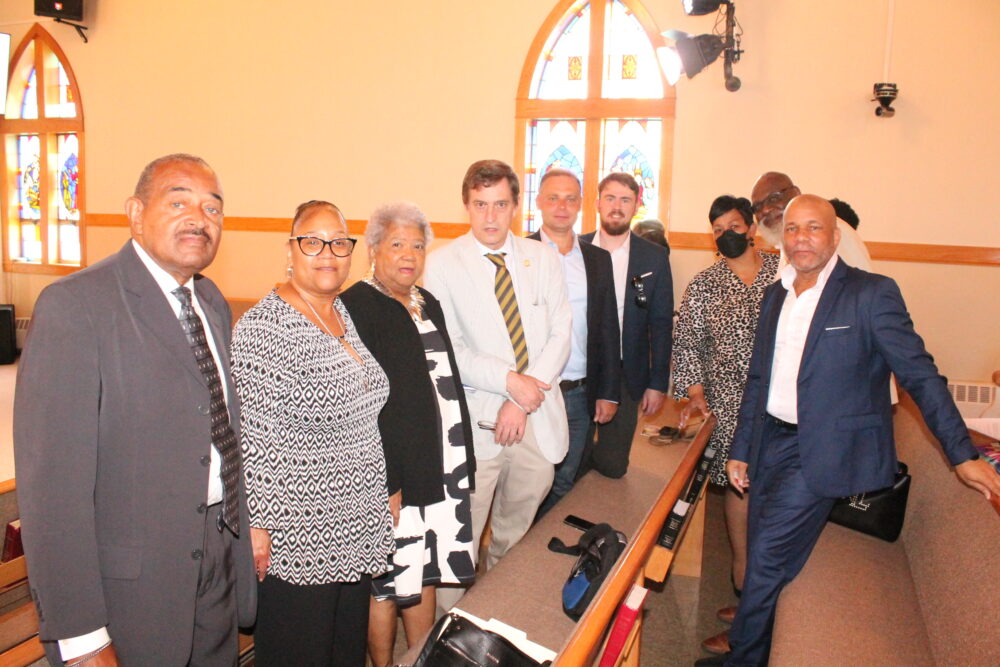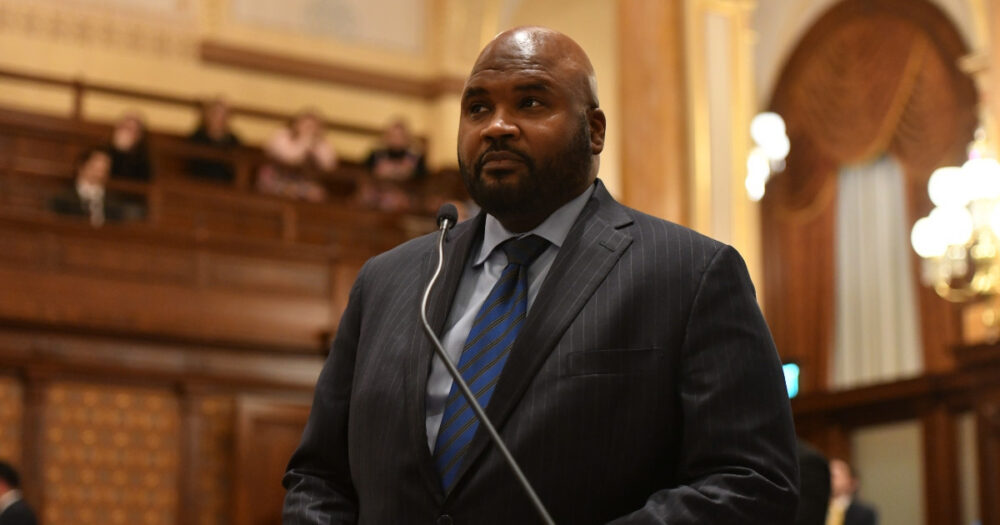A legal battle over cannabis business licensing in Illinois could overturn the state’s residency requirement, throwing a wrench into the already dysfunctional process and attempts to diversify the industry.
The litigation is just the latest in a series of lawsuits that have kept much of the state’s legal cannabis industry in limbo. But there are signs the logjam may be breaking.
Advertisement
A Cook County judge in another case has indicated she may lift a court injunction against issuing 185 pending recreational store licenses and hold a corrective lottery to remedy complaints about the licensing process. State officials also plan to issue 55 new licenses using a new streamlined process.
But this new federal case could jeopardize that. At issue is whether the state can favor license applicants who live in Illinois. Federal courts have struck down similar requirements in Maine, Michigan and Missouri, potentially opening licensing to much greater competition nationwide.
Advertisement
The lawsuit was filed by Juan Finch Jr., and Mark Toigo, who want to block issuance of new licenses until the state revises the licensing process to allow nonresidents a chance at winning.
Illinois doesn’t explicitly limit ownership to state residents. But in scoring applications for cannabis licenses, the state awarded five points for majority ownership by state residents, and 50 points for social equity applicants, defined most commonly as those with prior minor cannabis arrests or those living in parts of the state most harmed by the war on drugs.
Without those points, the plaintiffs couldn’t get the 85% of the maximum score required to qualify for lotteries for licenses.
When applications first became available in 2019, Finch, a disabled African American veteran, lived in California as an active-duty sailor in the U.S. Navy. He moved to Chicago in December of 2021 and plans to apply for the next round of licenses — but state law requires a resident applicant to have lived in the state for at least the past five years.
“An inclusive and equitable program would promote diverse candidates like me,” Finch said. “Instead, the Illinois cannabis program is rigged.”
Toigo, part owner of a cultivation license and Organic Remedies dispensaries in Missouri and Pennsylvania, successfully challenged the residency requirements in Missouri. But neither he nor Finch applied in Illinois, with their attorney John Adams saying it would have been futile to waste the $5,000 application fee.
Federal judges elsewhere have ruled that state residency requirements violate the U.S. Constitution’s so-called Dormant Commerce Clause, which allows Congress to regulate commerce among states. The clause does not explicitly address state residency requirements, but the courts have interpreted it to mean that states cannot interfere with interstate business.
The Illinois attorney general’s office countered that the plaintiffs in this case have no standing to sue, because they never applied for licenses, and the two-year statute of limitations for such a suit expired. Though Illinois legalized recreational marijuana in 2020, attorneys for the state argued, it remains illegal under federal law, preempting the Commerce Clause.
Advertisement
More generally, they argued in court filings, the plaintiff’s “unreasonable and inexcusable delay” shouldn’t now hold up licenses for everyone else.
At a hearing in April, Law 360 reported that U.S. District Chief Judge Rebecca Pallmeyer said the state licensing requirements probably violate the Commerce Clause, but added, “We can’t upend the whole process in favor of someone who didn’t apply in the first place.”
Another option would be to apply any changes in the licensing process to the next round of 55 licenses and to any future licenses. State officials agreed they would not issue any dispensary licenses until Pallmeyer rules on the matter.
But there’s still the matter of a Cook County case that consolidated lawsuits from nearly 70 plaintiffs. In that case, Judge Celia Gamrath recently indicated that she was leaning toward letting the state issue the 185 pending dispensary licenses and holding a corrective lottery for the applicants who say they were unfairly excluded.
Chicago attorney Ashley Brandt is not involved in the lawsuit, but represents clients who won lotteries for pending licenses. He handles Commerce Clause litigation for other commodities such as alcohol and in 2020 predicted that a legal challenge to the residency requirement would be filed.
Daywatch
Weekdays
Start each day with Chicago Tribune editors’ top story picks, delivered to your inbox.
“These guys shouldn’t have the ability to throw a monkey wrench in the process,” he said. “But it is a Commerce Clause violation, and you need to have this struck down for the next 55.”
Advertisement
Some states that legalized marijuana early on, such as Colorado and Oregon, previously dropped residency requirements.
The question for Illinois would be what becomes of state lawmakers’ attempts to favor social equity applicants. Illinois officials didn’t respond to a request for comment, but if residency requirements are struck down, state social equity standards could be extended nationwide.
One applicant whose team won a lottery drawing for a dispensary license, Frank Cowan, said any move to redo the lotteries would be hugely damaging to those waiting to start their businesses.
Companies that won the 185 provisional licenses have spent thousands of dollars on attorneys, consultants, and often to find and secure property. After a two-year delay in the process, starting over would prompt more owners to sell their licenses or open without enough money to be successful.
Cowan, who is Black and originally from the South Side and now lives in Westmont, said he had a minor marijuana conviction that hindered him for years but now qualifies him for advantages as a social equity license holder.
He’s partnered with Planet 13, which runs what it calls the largest dispensary in the nation in Las Vegas. If the litigation gets resolved, he hopes eventually to open the nation’s second-largest cannabis store in the Chicago area.







